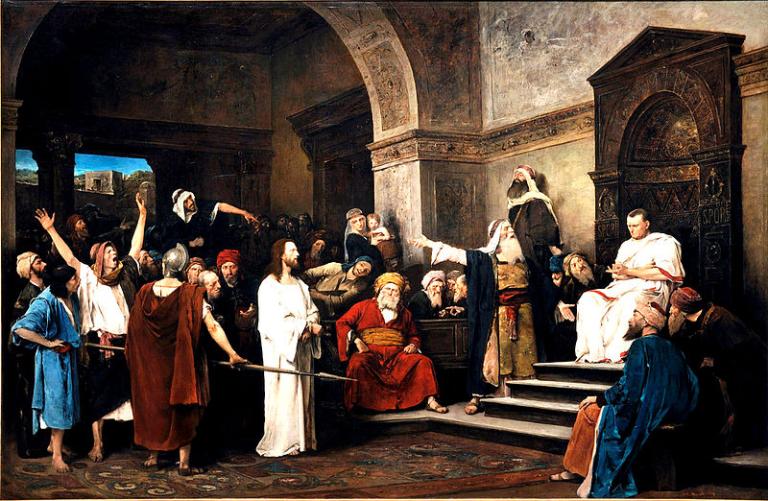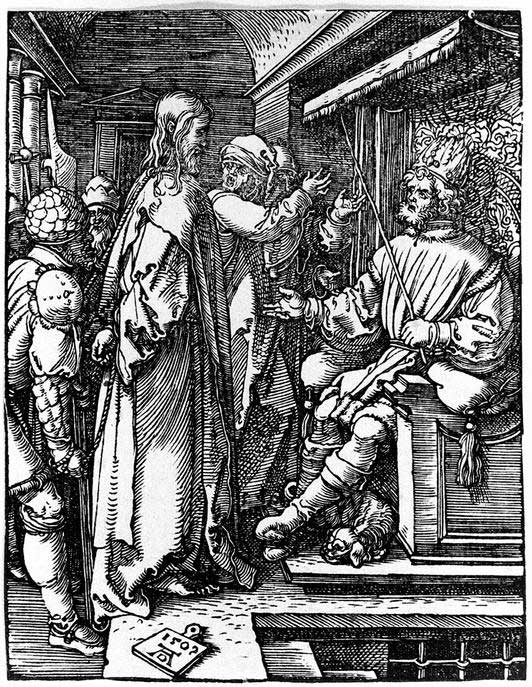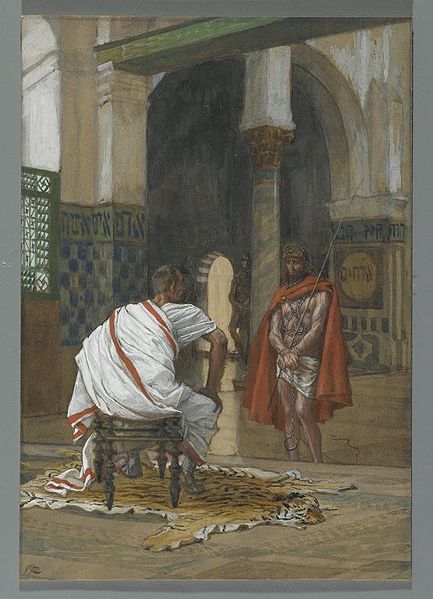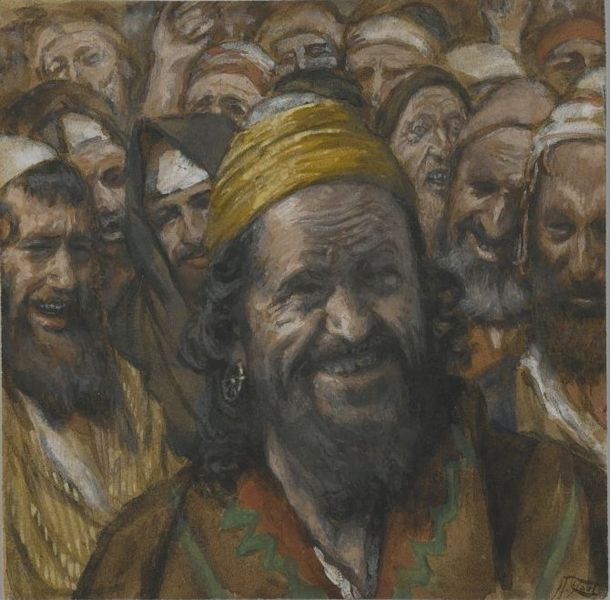
Compare Matthew 26:53; Luke 23:9-10, 13-14; John 19:8-15
Why did Jesus make no defense? Why did he say so little before Pilate?
Because he would go to his death without resistance. He would no more defend himself verbally than he had defended himself physically, even though, as he pointed out at his arrest, he could have called upon legions of angels to protect him.
“To this end was I born,” he says at John 18:37, “and for this cause came I into the world, that I should bear witness unto the truth [ἵνα μαρτυρήσω τῇ ἀληθείᾳ].”
The Greek verb μαρτυρήσω (martyrêsô, “[that] I bear witness”) contains an obvious secondary hint of martyrdom. In the words of the Christmas carol, “Jesus the Saviour did come for to die for poor on’ry people like you and like I.” That was the whole point.

Wikimedia CC public domain
Compare Matthew 27:12; Mark 15:3-4; John 19:9
1.
In these accounts, Jesus is a bit like the proverbial hot potato. Each official is trying to pass him off to the next one, hoping that the other will handle the situation.
2.
There is real irony in the statement, at Luke 6:12, that Herod and Pilate were reconciled after a period of bad relations by their shared involvement in a gross — and, as it happened — historically pivotal travesty of justice.

James Tissot, ca. 1886-1894
(Wikimedia Commons public domain)
Compare Luke 23:4, 22; John 18:38
As the Roman procurator of Judea, Pilate had no interest — and no legal responsibility to be interested — in questions of Jesus theology and law. He was there, simply, to maintain to maintain order and to protect the interests of Rome.
Accordingly, once he had discovered that Jesus wasn’t seditious and posed no threat to Roman sovereignty, he saw nothing in him that was worthy of capital punishment — a sentence that only Roman occupation authorities could impose.

The mob’s choice — urged on by the scheming chief priests — of the robber and murderer Barabbas over Jesus, an innocent preacher of love and hope, is a perfect image of sheer human perverseness.
All four of the canonical gospels, John as well as the synoptics, mention this episode. Their writers are plainly as appalled by it as we are.
But we shouldn’t point the finger at the wickedness of that ancient crowd. Don’t we, too, routinely choose evils (of greed, lust, revenge, ambition, and a thousand other things) over the Prince of Peace?
Posted from Herzliya, Israel











